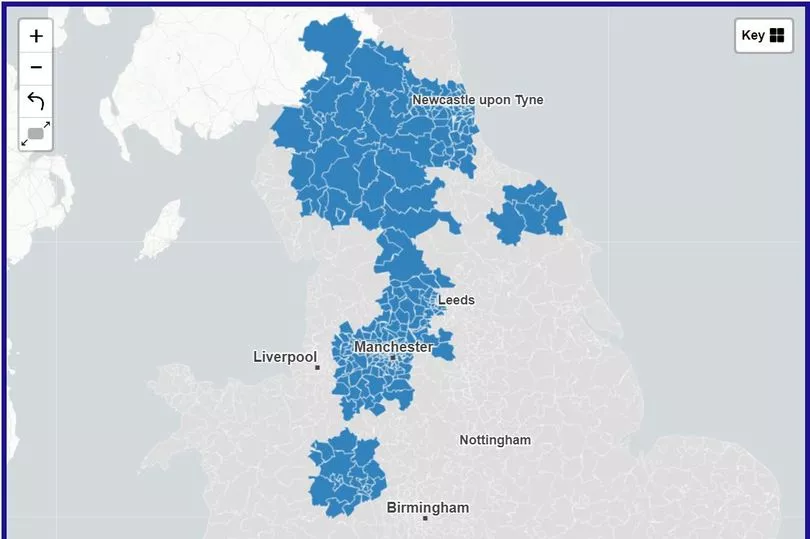Image Credit: GetyImage
In the fast-paced realm of technology and travel, the evolution of computer reservation systems (CRS) has been a cornerstone in streamlining booking processes and enhancing operational efficiency across the globe. As a central hub for managing bookings of flights, hotels, and other travel services, the significance of staying updated with the latest computer reservation system news cannot be overstated. This continuous influx of updates not only informs but also shapes the future of travel industry practices. With advances in technology rapidly transforming the landscape, accessing the latest computing research news, particularly in the context of computerized reservation systems, is crucial for stakeholders to remain competitive and innovative.
This article aims to dissect the latest trends and insights in the sphere of computer reservation systems, providing a detailed exploration of its evolution, current trends, and the impact these systems have across various sectors of the travel industry. By delving into the challenges and opportunities that come with the development and implementation of these systems, readers will gain a comprehensive view of the current state and future prospects of CRS. From the groundbreaking innovations that redefine consumer experiences to the operational challenges that companies face, an overview of the most pivotal aspects covered in the realm of reservation system today will be presented.
The Evolution of Computer Reservation Systems
Historical Background
The journey of computer reservation systems (CRS) began in the mid-20th century when the burgeoning airline industry sought faster and more efficient methods to handle bookings. In 1946, American Airlines introduced the first automated booking system, the Electromechanical Reservisor. This early system, followed by the Magnetronic Reservisor, utilized temporary storage based on a magnetic drum, marking a significant step forward from the manual processes previously in place.
By 1953, the need for further advancements was clear. American Airlines’ CEO, C.R. Smith, encountered an IBM sales representative, which led to a collaboration that would revolutionize the industry. Their joint effort culminated in the creation of the Semi-Automatic Business Research Environment (SABRE) by 1959, which became operational in 1964 as the world’s largest civil data processing system at that time.
Key Milestones
The success of SABRE spurred a wave of innovation across the airline industry. Delta Air Lines introduced the Delta Automated Travel Account System (DATAS) in 1968, and soon after, United Airlines and Trans World Airlines launched their own systems, Apollo and Programmed Airline Reservation System (PARS), respectively. The introduction of these systems transformed how airlines and travel agencies managed bookings and customer data.
In 1976, the landscape of CRS was further expanded with the launch of Travicom, the world’s first multi-access reservation system. This system was a collaboration between Videcom International, British Airways, and other partners, providing a platform that allowed multiple airlines and travel agents to interact through a common distribution language.
The development of CRS continued to evolve with the introduction of systems like Amadeus in 1992, formed by a consortium led by Air France and Lufthansa, and Galileo International in 1993, which included partners such as British Airways and United Airlines. These systems not only enhanced the efficiency of booking processes but also significantly increased the accessibility of travel options globally, setting the stage for the modern, interconnected travel industry we recognize today.
Latest Trends in Computer Reservation Systems
In the dynamic field of travel and technology, computer reservation systems (CRS) are continuously evolving to meet the demands of modern consumers and businesses. The latest trends in CRS are shaping the industry, making systems more efficient, user-friendly, and accessible. These developments are crucial for stakeholders who rely on cutting-edge technology to stay competitive in a fast-paced market.
Integration of AI and ML
One of the most significant advancements in computer reservation systems is the integration of Artificial Intelligence (AI) and Machine Learning (ML). These technologies are being utilized to enhance predictive analytics, allowing businesses to offer personalized travel recommendations based on user behavior and preferences. AI algorithms help in optimizing pricing strategies and inventory management, making CRS more intelligent and responsive to market dynamics. Additionally, AI-driven chatbots and virtual assistants are now common features, providing real-time assistance to users, which improves customer service and operational efficiency.
Cloud-Based Solutions
The shift towards cloud-based solutions is another prominent trend within the realm of computer reservation systems. These cloud platforms offer several advantages over traditional on-premise systems, including scalability, flexibility, and cost-efficiency. They enable seamless integration with other services and allow data to be accessed remotely, which is particularly beneficial in today’s mobile-first world. Moreover, cloud-based CRS are inherently more secure, with providers offering robust cybersecurity measures to protect sensitive data against potential breaches.
Mobile Accessibility
Enhancing mobile accessibility has become a priority for CRS providers, reflecting the increasing reliance on smartphones for travel bookings and management. Modern CRS are designed to be fully functional on mobile devices, providing a seamless user experience from booking to boarding. This mobile-first approach not only caters to the needs of tech-savvy travelers but also ensures that travel agents and operators can manage bookings on the go, thereby increasing productivity and customer engagement.
These trends in computer reservation systems are not only improving the efficiency and effectiveness of travel bookings but are also offering new opportunities for personalized customer engagement and innovative service offerings. As technology continues to advance, the evolution of CRS will likely introduce even more capabilities, further transforming the travel industry landscape.
Impact on Various Sectors of the Travel Industry
Airlines
The integration of Computer Reservation Systems (CRS) has significantly transformed the airline sector. Airlines utilize CRS to influence travel agents’ recommendations effectively. By analyzing the behavior of individual agents, airlines can tailor commissions to optimize their flight recommendations. This strategic use of CRS not only boosts productivity but also enhances profitability. Initially, the profitability of CRS stemmed from their ability to directly influence travel agents’ recommendations, as agents tend to suggest flights that are prominently displayed by the CRS. Despite regulations aimed at eliminating display bias, these systems remain highly profitable due to the continued preference of agents to book flights from the carriers that own the CRS they use.
Hotels
In the hotel industry, CRS has become a cornerstone, greatly enhancing operational efficiencies and guest experiences. The use of CRS in hotels allows for real-time management of reservations, room availability, and pricing from a centralized platform. This reduces the risks of overbooking and enables accurate inventory management. Moreover, hotels leverage CRS data to offer personalized guest services based on individual preferences, which significantly boosts customer satisfaction and loyalty. Additionally, revenue management tools integrated into CRS enable hotels to dynamically adjust rates, maximizing occupancy and profitability.
Car Rentals
CRS has also revolutionized the car rental industry by providing robust management tools that streamline operations and enhance customer service. Car rental companies benefit from features such as real-time vehicle availability, online booking systems, and automated maintenance notifications. These systems support a seamless integration of various service offerings, allowing customers to make reservations easily and efficiently. Moreover, the integration of APIs enables car rental companies to offer a wide range of vehicles and rental options, enhancing customer choice and satisfaction.
Multi-Modal Transport
The impact of CRS extends to multi-modal transport systems, improving efficiency and connectivity across different transportation modes. CRS facilitates the seamless integration of services such as rail, bus, and air travel, offering a comprehensive booking experience. Customers benefit from streamlined ticketing solutions and real-time seat availability, which simplifies the travel process and enhances overall satisfaction. Additionally, CRS supports dynamic pricing strategies across different transport modes, optimizing revenue and ensuring competitive pricing.
The widespread adoption of CRS across various sectors of the travel industry underscores its critical role in enhancing operational efficiencies, improving customer experiences, and driving profitability.
Challenges and Opportunities in CRS Development
In the evolving landscape of computer reservation systems (CRS), developers face a variety of challenges, yet these hurdles also present significant opportunities for innovation and improvement. Addressing these issues effectively can lead to more robust, efficient, and user-friendly systems that significantly enhance the travel industry’s operational capabilities.
Data Security and Privacy
One of the paramount challenges in CRS development is ensuring the security and privacy of sensitive customer information. Robust data encryption and stringent access controls are essential, as these systems handle large volumes of personal and financial data. Compliance with international data protection regulations is not just a legal necessity but a critical component in maintaining consumer trust and integrity in CRS operations.
Also Read: Airplane Crash in Little Rock: Detailed Analysis and Updates
Integration with Legacy Systems
Integrating CRS with existing legacy systems presents another significant hurdle. Many organizations still operate outdated enuke software and hardware, which were not designed to function seamlessly with modern systems that offer more storage and faster processing speeds. These legacy systems often use obsolete programming languages and lack adequate documentation, making it difficult to understand their operation and process data effectively. To overcome these challenges, conducting a technology audit can be beneficial to identify and address integration issues. Developing a phased migration plan can also facilitate the gradual integration of new technologies, minimizing disruptions to ongoing operations.
High Volume Transaction Handling
CRS must be capable of handling high volumes of transactions reliably and efficiently. This is crucial not only for booking and payment processing but also for maintaining the overall performance of the system during peak times. Ensuring that CRS can manage these demands is vital for preventing system overloads and ensuring smooth operational flow.
The development of CRS systems is marked by these challenges, but they also offer opportunities to leverage cutting-edge technologies and innovative strategies. Adopting modern integration tools like API gateways and microservices can aid in overcoming compatibility issues with legacy systems by simplifying complex processes into more manageable components. Moreover, collaboration with technology specialists can provide the necessary expertise to navigate the modernization process, tailoring solutions to meet specific organizational needs and enhance overall system functionality.
By addressing these challenges head-on and exploring the available opportunities, developers can significantly advance CRS technology, leading to more efficient, secure, and user-friendly systems that propel the travel industry forward.
Conclusion
By integrating advanced technologies such as Artificial Intelligence, Machine Learning, and cloud-based solutions, CRS have not only streamlined the booking process but have also introduced new capabilities for personalized customer engagement and improved inventory management. These advances have empowered airlines, hotels, car rentals, and multi-modal transport sectors to optimize their operations and offer an enriched customer experience, highlighting the indispensable role of CRS in today’s fast-paced travel market.
As we look towards the future, the continuous development of CRS promises even greater innovations and opportunities for the travel industry. However, challenges related to data security, integration with legacy systems, and handling high-volume transactions underscore the need for ongoing research and adaptation. Embracing these challenges as opportunities for innovation will be key to unlocking the full potential of computer reservation systems, ensuring that they remain at the forefront of technological advancement and continue to drive efficiency, satisfaction, and growth within the global travel ecosystem.
FAQs
What are the benefits of using a computerized reservation system in the airline industry?
A computerized reservation system (CRS) is crucial for airlines as it manages flight details, inventories, and pricing, while also facilitating the reservation process. It provides travel agents with access to essential information such as flight schedules, fares, and seat availability.
How do computers facilitate air travel and reservation processes?
Computer reservation systems, also known as central reservation systems (CRS), are sophisticated computerized systems designed to store and retrieve information and handle transactions related to air travel, hotel bookings, car rentals, and other related services.





One Comment